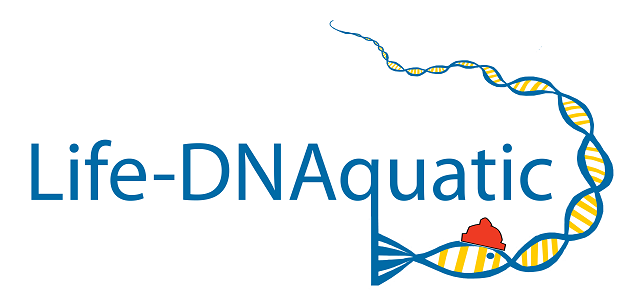
A four-year (2019-2022) international research project on development of methodology and quality control for monitoring of aquatic animals in various habitats such as lakes, running waters and marine environments using environmental DNA (eDNA) and metabarcoding.
Traditional aquatic species surveys typically require vast investments in equipment, time and skilled taxonomists to identify species. Besides often being invasive and harmful to the study species, they are often characterized by inefficiencies and limitations in detection rate. During the last decade a powerful census tool – environmental DNA or eDNA – has emerged. In principle this non-invasive method can provide a comprehensive species inventory including rare, dangerous, invasive and difficult-to-sample taxa by analysing environmental samples. Proof-of-concept studies have demonstrated that eDNA approaches has a high detection rate for most aquatic taxa compared to traditional methods and especially for fish and amphibians. Method development in eDNA-studies is rapid and has led to great improvements during the last few years, but there is an urgent need for optimisation in both sampling strategies and sample processing. The project Life-DNAquatic will build on knowledge that is available within the project team and research network to develop methods and techniques applicable for field sampling, sample processing and storage of eDNA samples in four aquatic environments: streams, lakes, wetlands and the marine environment. Specifically, the project aims to:
- Compare spatial and temporal differences in sampling design to find the optimal season and sampling effort for different aquatic habitats.
- Compare cost performance and handling time of different sampling and filter methods.
- Provide a robust field collecting protocol to avoid contamination of samples.
- Fully assess the integrity of eDNA under variable conservation methods.
- Compare the outcome of different eDNA extraction methods.
- Assess costs, benefits and disadvantages of eDNA approaches in comparison with conventional monitoring methods.
The project will give clear recommendations and guidance for eDNA sampling (where, when, how) to representatively detect aquatic species of high relevance for Swedish aquatic management.
The research project Life-DNAquatic originates from the European research network DNAqua-Net and is a collaboration between AquaBiota Water Research (SE), MIX Research Sweden (SE), Hull University (UK), INBO (BE), MoRe Research (SE), Nature Metrics (UK), and Swedish University of Agricultural Sciences. The project is funded by the Swedish Environmental Protection Agency´s Research Grant in collaboration with the Swedish Agency for Marine and Water Management and runs between 2019-2021.
Reports:
Hellström, M., Andersson-Li, M., Brys, R., Halfmarten, D., Hänfling, B., Näslund, J., Sjöstedt, J., Spens, J., Tang, C., Öhman, M.C. & Bruce, K. 2021. Riktlinjer för hantering av akvatiskt eDNA som verktyg inom svensk miljöanalys – Del I: Insamling i fält, filtrering och konservering. AquaBiota Report 2021:09
Hellström, M., Andersson-Li, M., Brys, R., Halfmarten, D., Hänfling, B., Näslund, J., Sjöstedt, J., Spens, J., Tang, C., Öhman, M.C. & Bruce K. 2021. Riktlinjer för hantering av akvatiskt eDNA som verktyg inom svensk miljöanalys – Del II: Laboratoriekrav och eDNA-extraktioner. AquaBiota Report 2021:10
